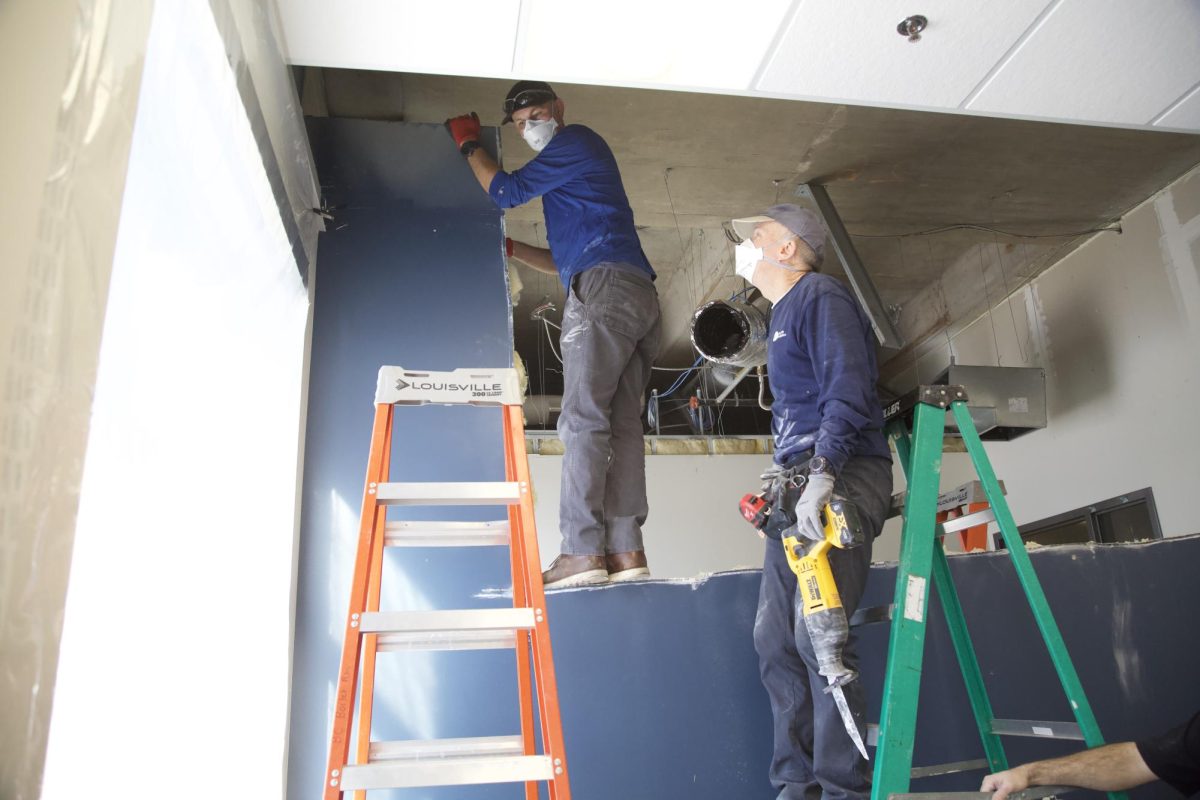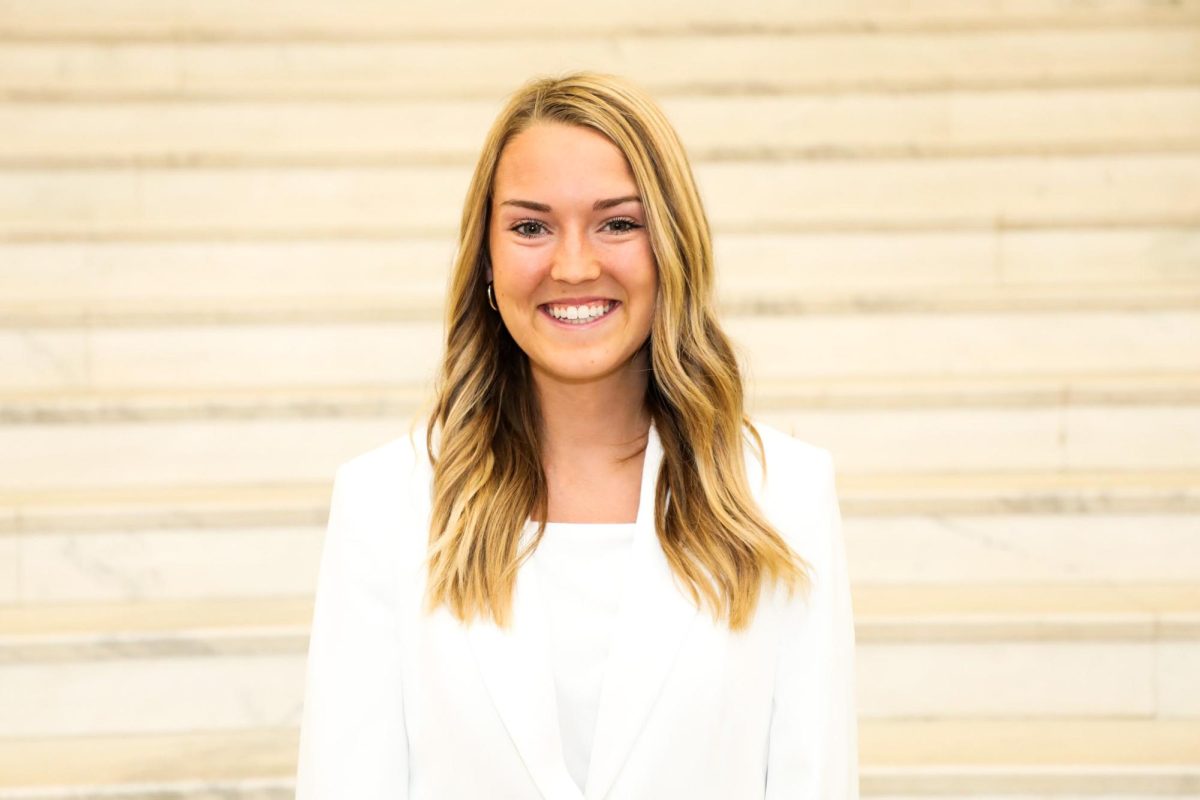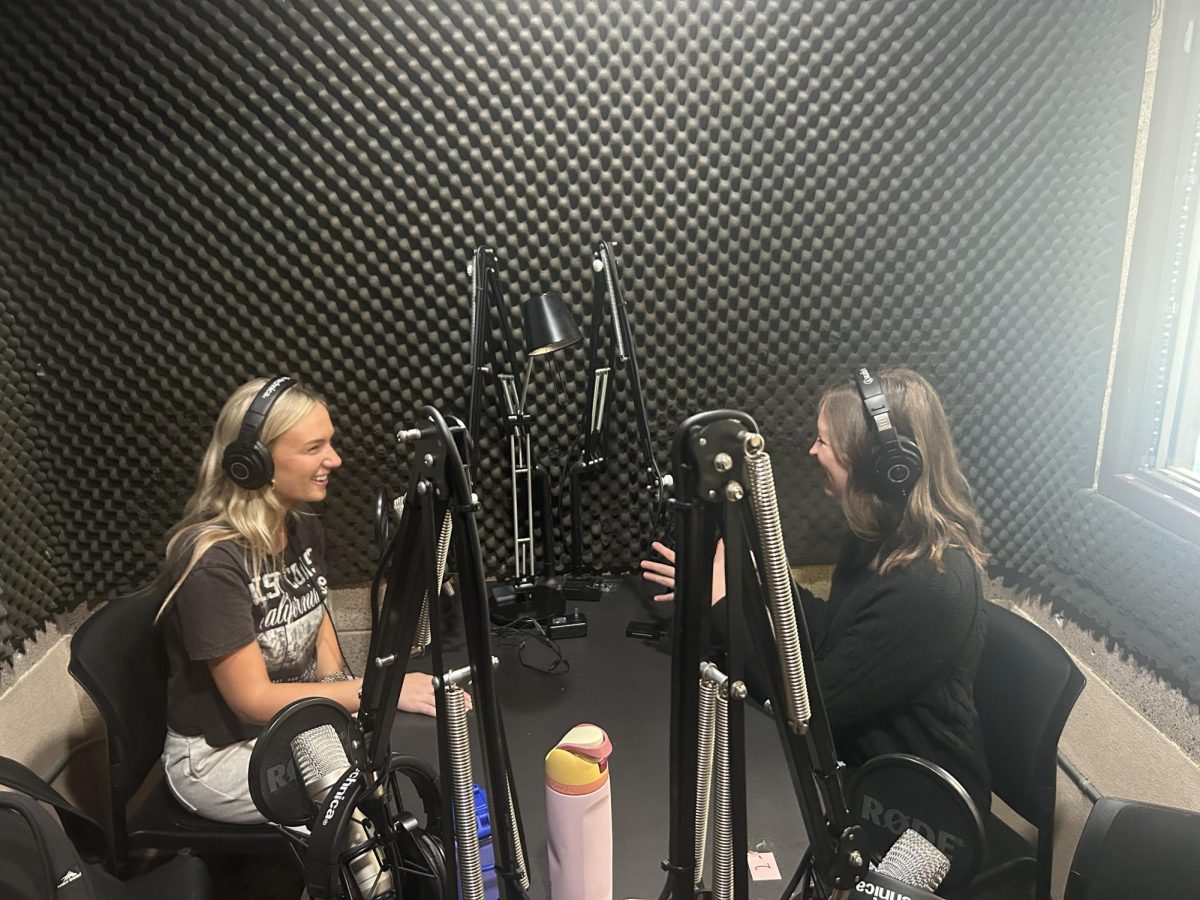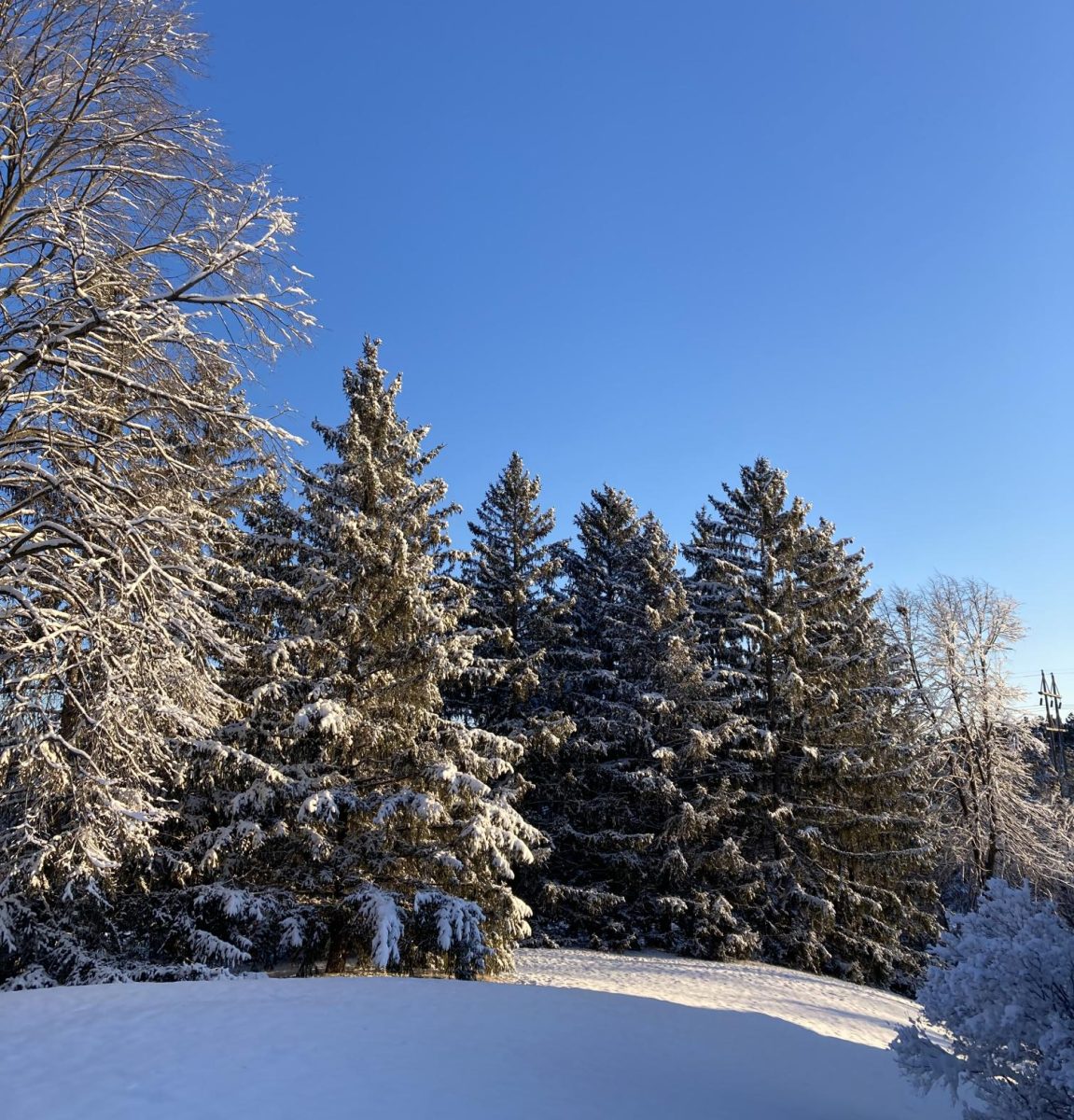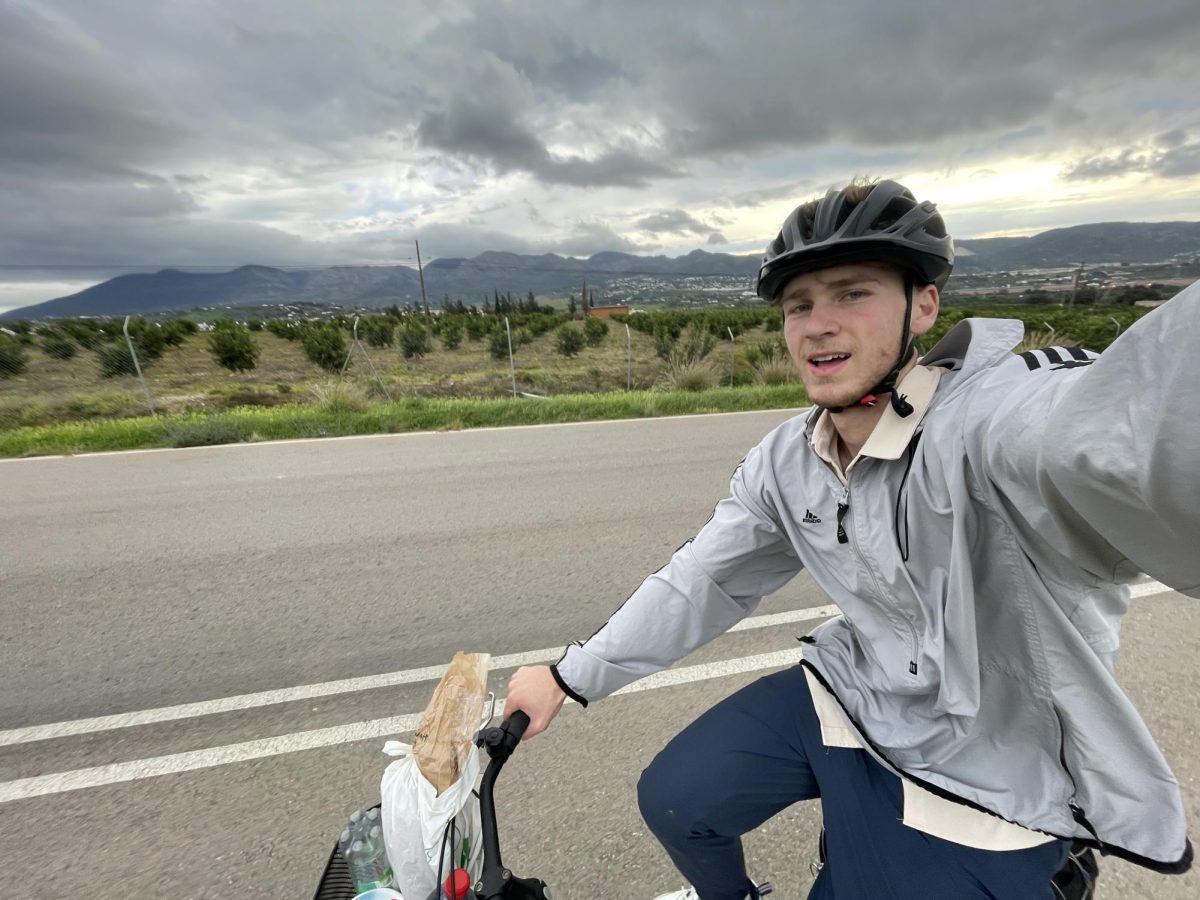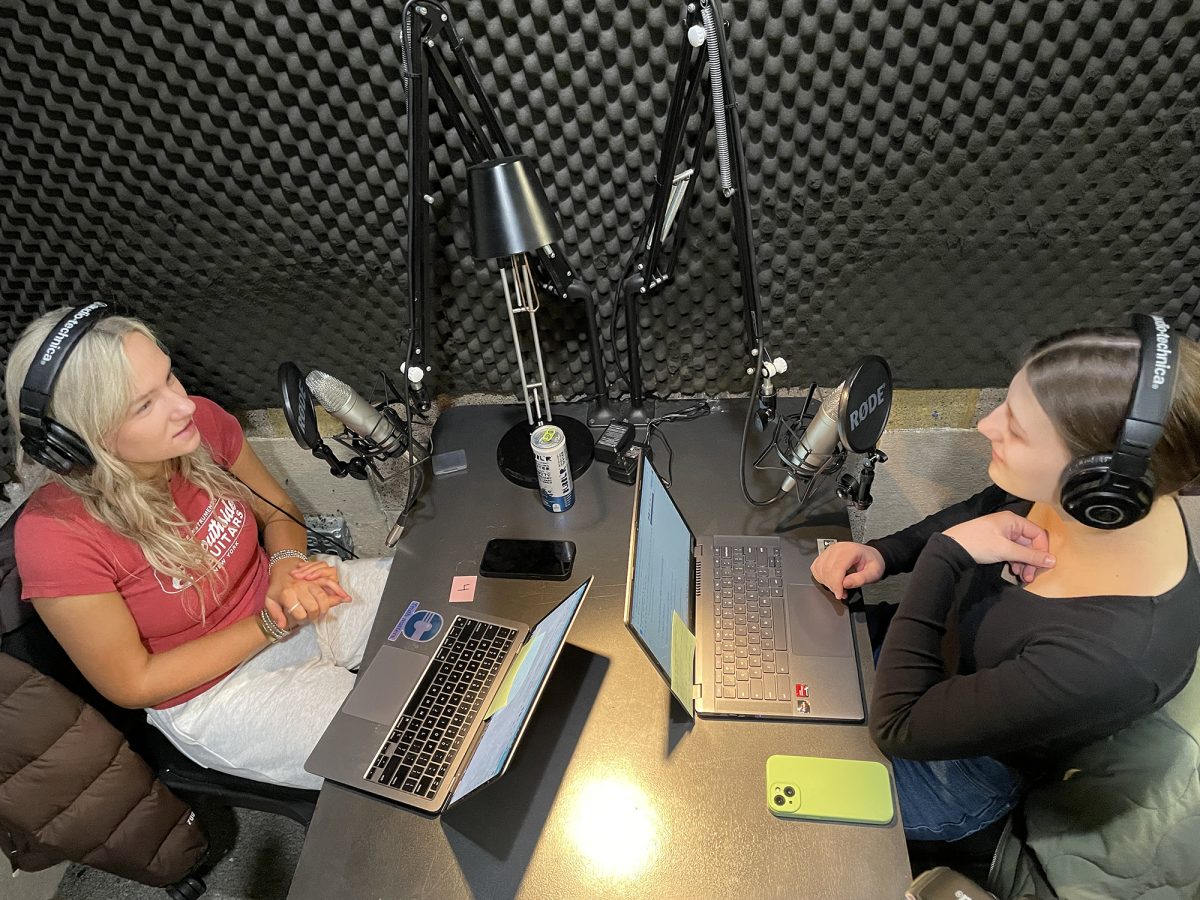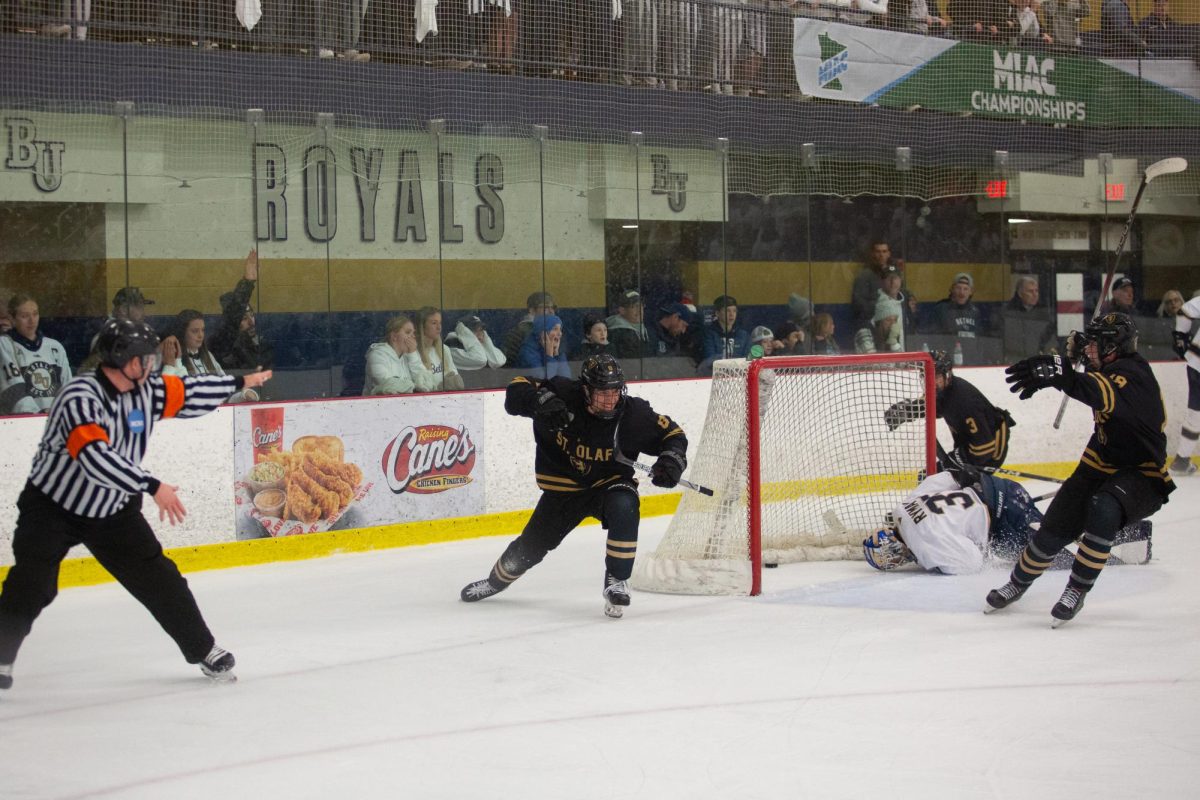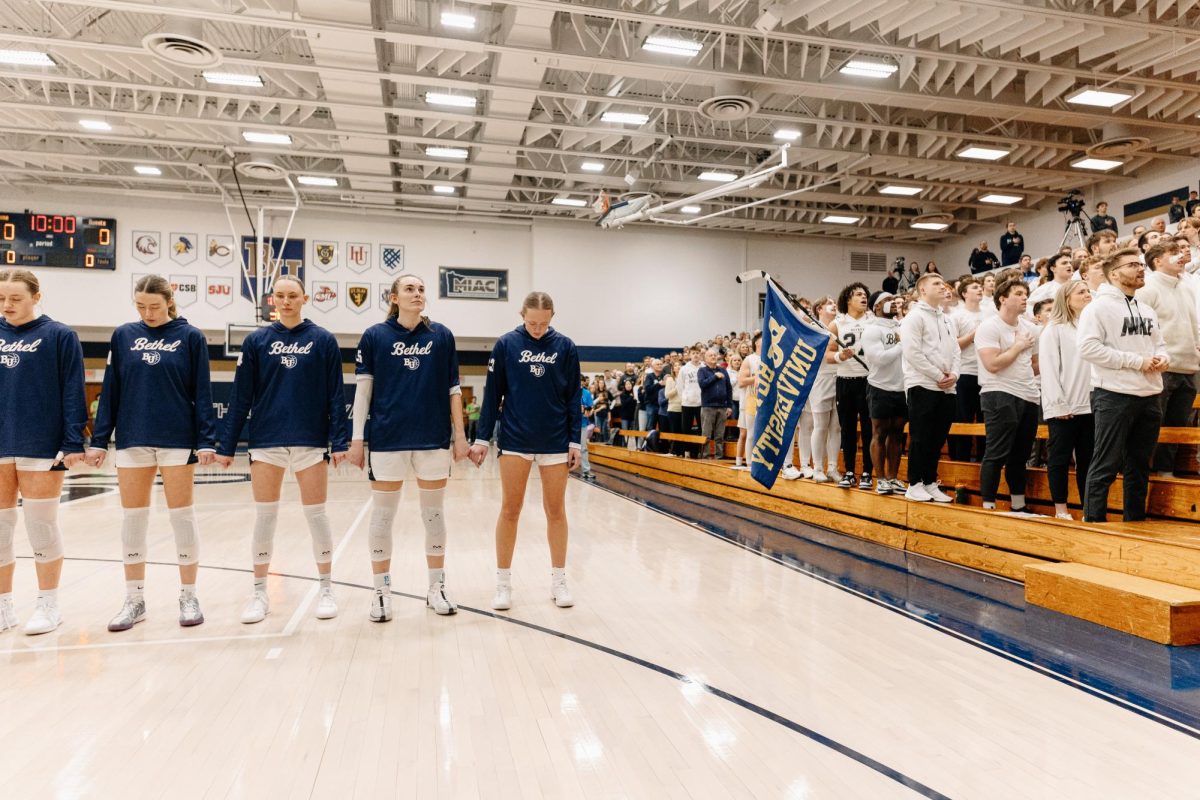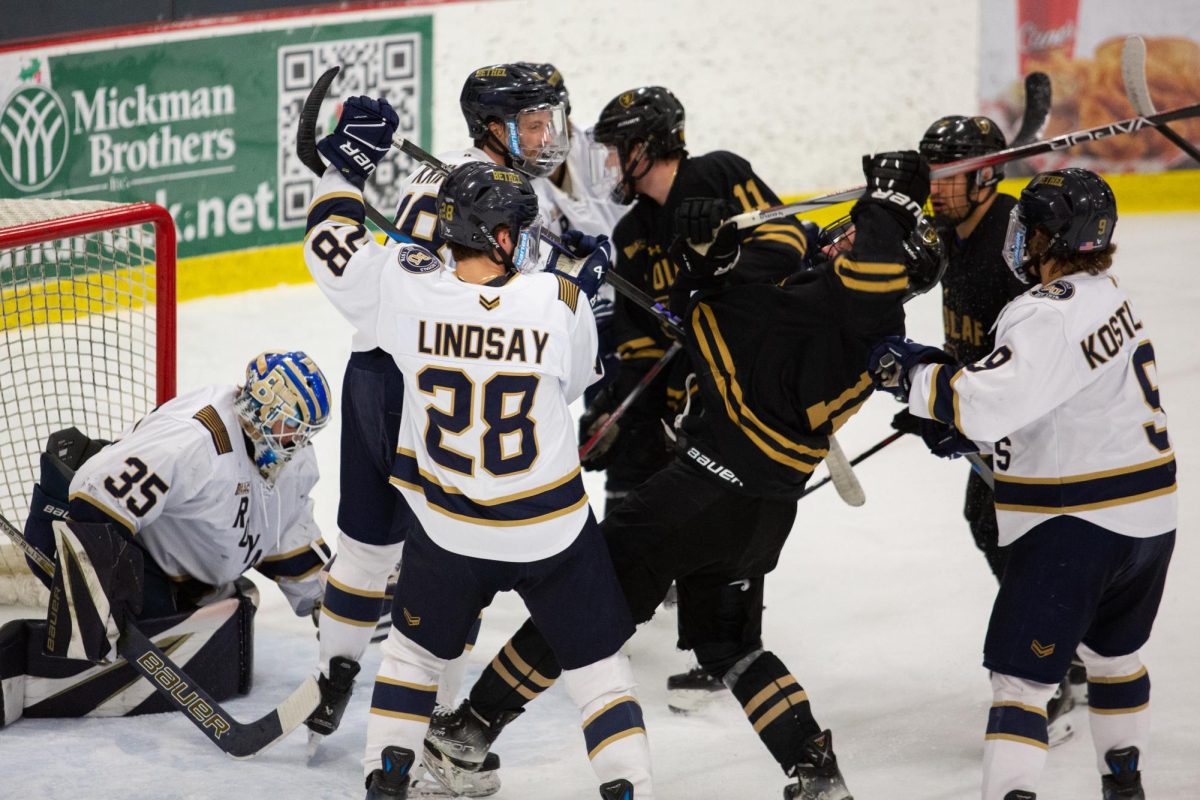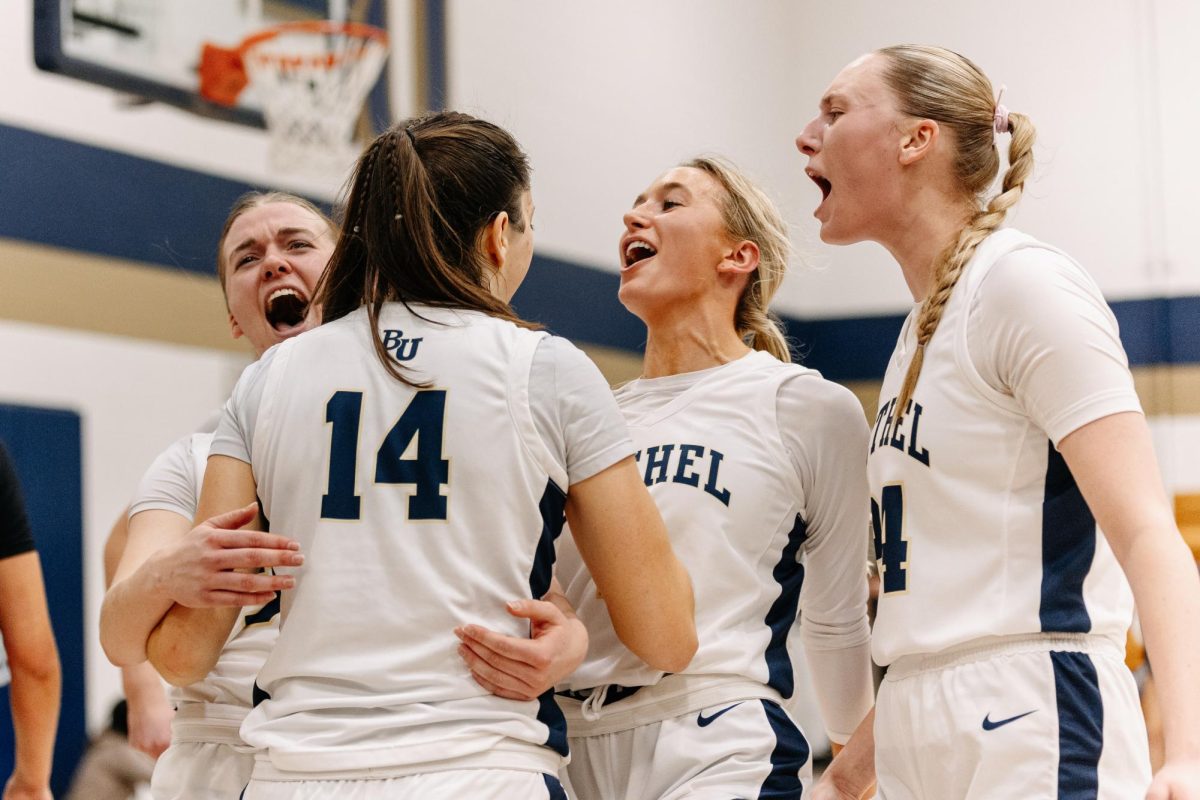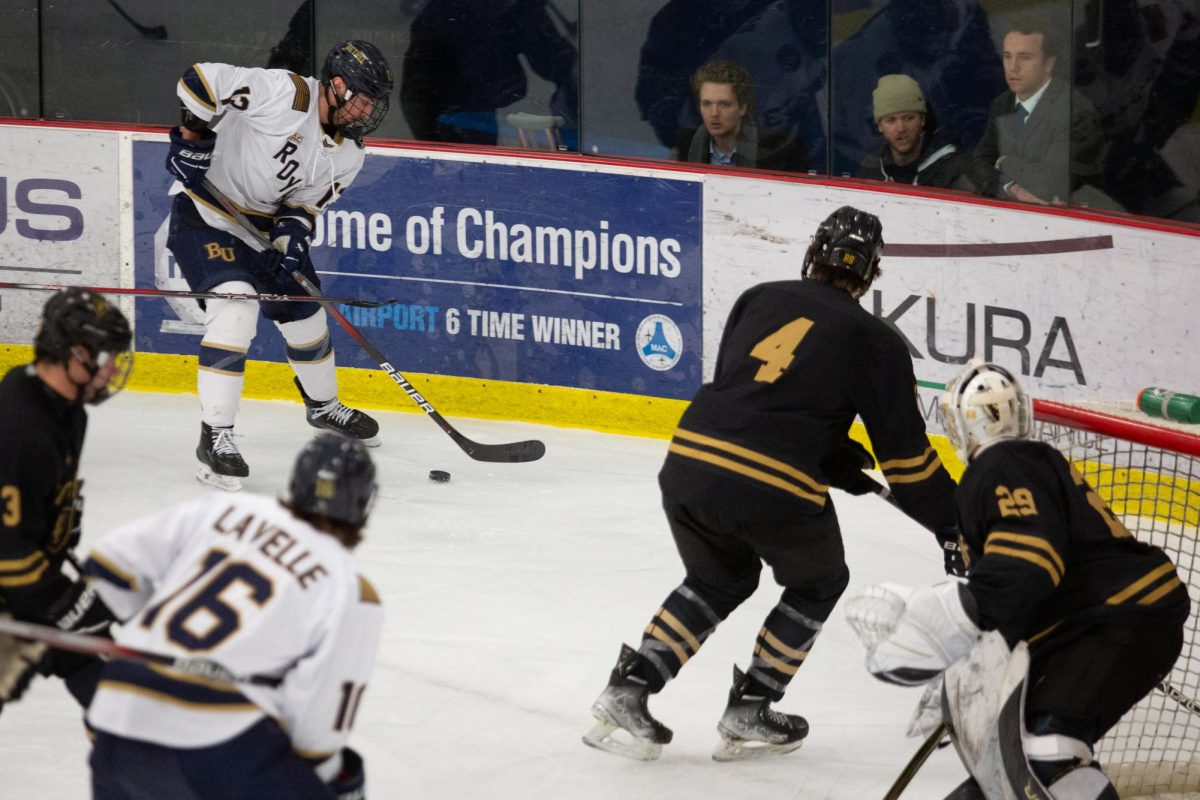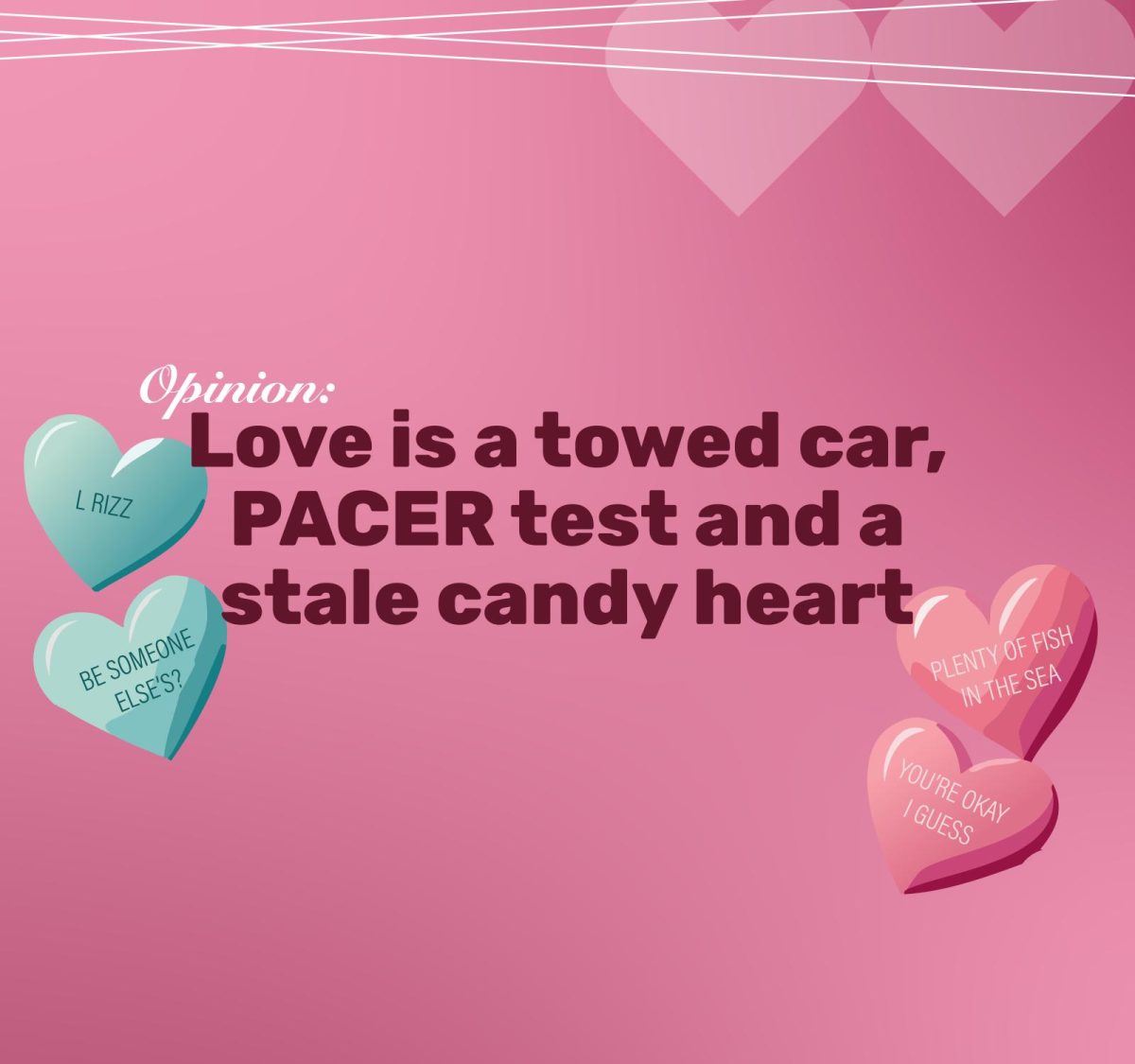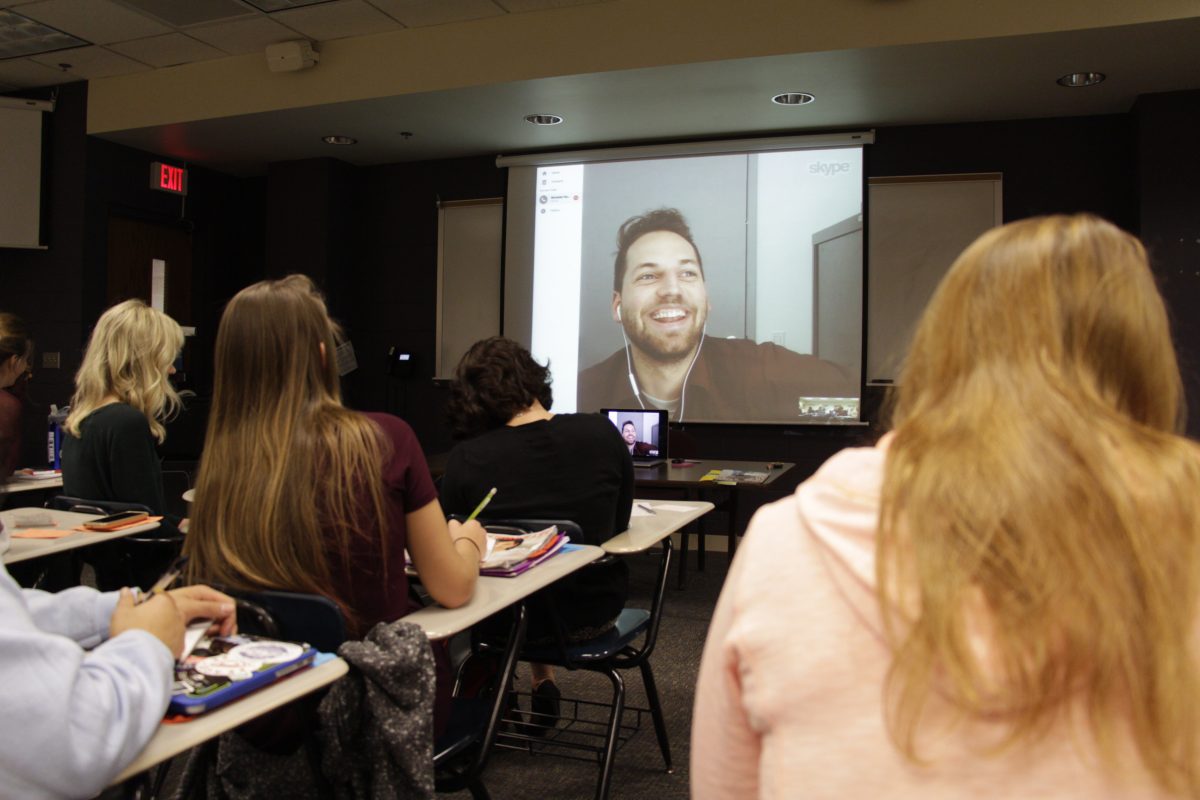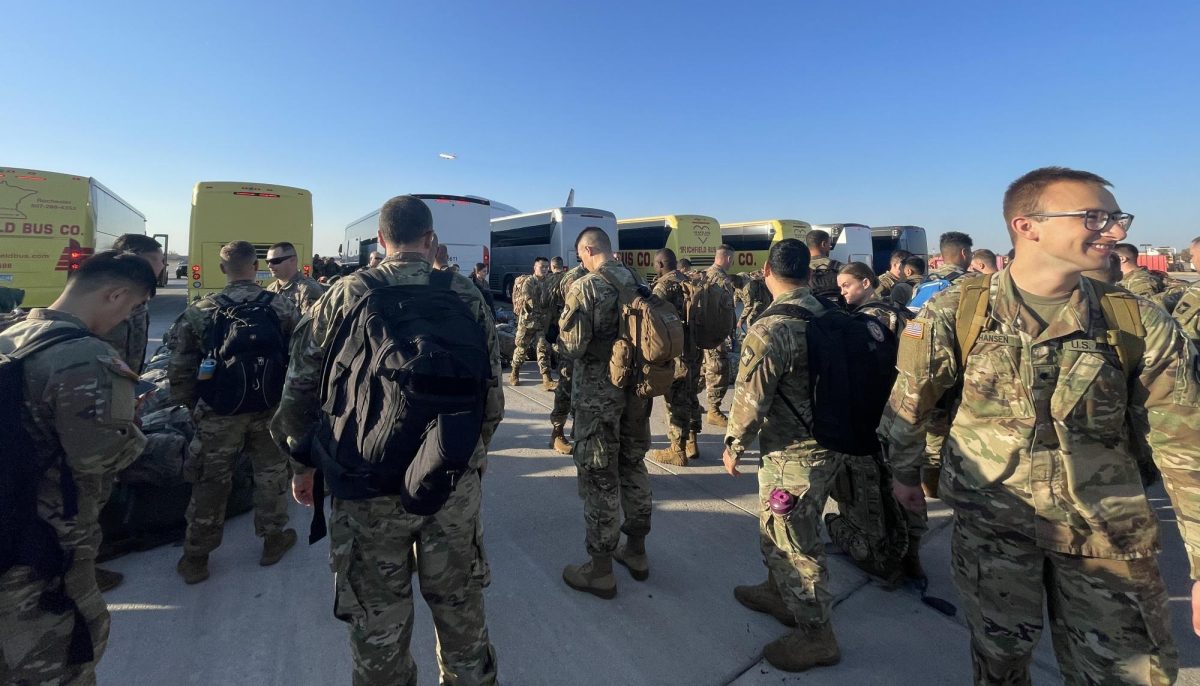Story by staff | Photos by Callie Schmidt
Nickolai Hammar graduated from the University of Nebraska in his hometown of Lincoln with a journalism major. Hammar has gone from interning at an unpaid music non-profit to interning at NPR Music and now working full-time with Morning Edition. But it took him four tries to get in the door at NPR. Each time, he called to ask what he was doing wrong. Then he fixed it.
He lives in Brooklyn, works in Times Square and speaks a little German. In English, he Skyped into Bethel University’s ENW360 Topics: Art and Culture Reporting class to tell some stories and offer some philosophy on music, journalism and toughening up.
Audio Player
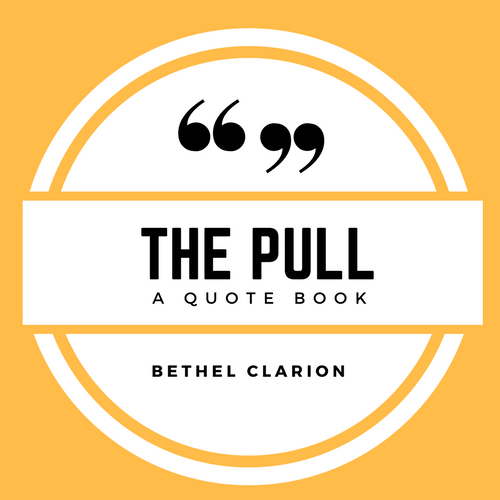 Music is a refuge for everyone. It certainly always has been for me, from my emo kid days in middle school and high school to now. I think I unfairly call music coverage trivial sometimes. I think it is really important for a lot of people, I think it’s an escape, I think it’s a lighter thing to consume with all this heavy news today.
Music is a refuge for everyone. It certainly always has been for me, from my emo kid days in middle school and high school to now. I think I unfairly call music coverage trivial sometimes. I think it is really important for a lot of people, I think it’s an escape, I think it’s a lighter thing to consume with all this heavy news today.
My favorite band was My Chemical Romance in high school. I still listen to them just not very publicly anymore.
I grew up making a bunch of YouTube videos with my friends that are terrible and I will never show you.
In college, I would look at the other students’ photos and think “They have such a cool style and mine’s just this boring shit that comes out the same every time.” But their stuff looked the same every time, too.
Asking other people to look at your work is how you figure out what your style is. It’s like, you can’t smell yourself. Ask other people to smell you until you can identify your own smell.
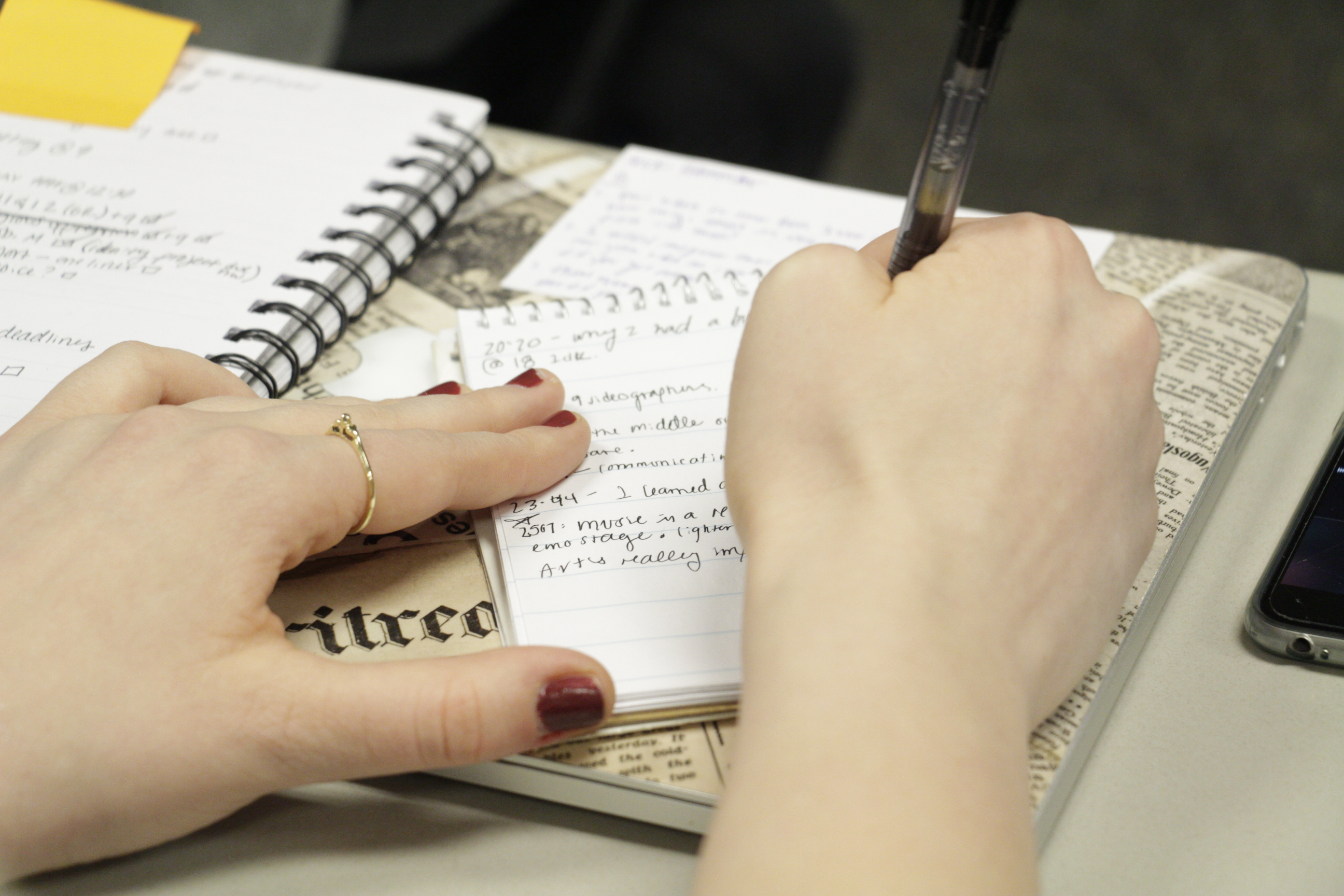
I respected NPR quite a bit more than Rolling Stone. I used to read a lot of Rolling Stone growing up and I’ve kind of been upset from where they’ve gone in the past few years. I didn’t really see anyone else doing as many cool things like these remote sessions with musicians, which was what I was really into, and that’s what got me into NPR.
For the sessions with musicians in concert setting we’ve gotten really creative with lighting. We’ve lit videos with laptops before — turning the brightness on the screen all the way up.The other night we put our phones on mike stands. (Bri/McKenzie 8:30)
I always look for a place that had good lighting, but you also want it to look interesting.I always look for an interesting background, like a cityscape. We definitely have gotten kicked out of areas where we intended to shoot.
Audio Player
NPR is pretty strict and rigid with its ethical policies and coverage. But it changes a little bit with music. I think you always have to be conscious about how much of the situation you are controlling.
Being aware is a huge part of being a journalist. I think in moments like that you need to rely on your partner or team member.
You don’t want to waste an opportunity because you’re not prepared.

A lot of the bigger artists we work with can be really inconsiderate of other people’s time, which is a huge bummer to me and always detracts from my respect for the artist.
If I don’t like the music I’m shoot, sometimes, to compensate, I end up making more interesting work because it needs to be fun for me visually.
Art is really important to me and being able to act as a face for artists to get their music and their message out there is really important to me.
If you find something that you’re interested in and unsure of, give it a shot. Explore it. If it doesn’t work out, you’ve got time to try something else.
I think everything that you work on has an impact on you. Whether it’s like you make mistakes and you really screw yourself over and you learn from that and you like never forget to do that thing again because you’ll never live it down, or just the people that I meet. I am constantly interested in the people I work with. People surprise me all the time, even if it’s Alicia Keys being nice or people whom I would anticipate being really boring end up being really interesting.
Taking the opportunity to learn about people we kinda thought we had figured out informed us a lot on how we were gonna put the inauguration and women’s march stories together in Washington D.C. and I think made it a much more even-keeled picture of the day.
You don’t have to take the same path that everyone else is taking.
–Edited by Carlo Holmberg


